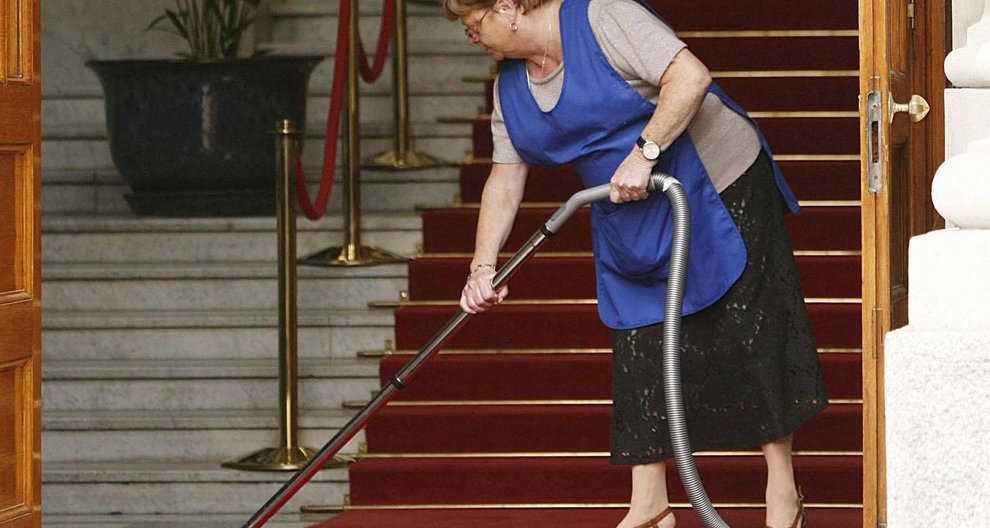What can Tracy Brabin and other metro mayors do to tackle inequality and strengthen worker voice? Luke Hildyard writes for the Yorkshire Post

Research from the IPPR North think-tank in 2019 found that “in the UK, power is more centralised than in any comparable country” with 95p of every £1 paid in tax going to central government rather than local authorities.
Local government has also borne the brunt of public service cuts, with funding from Whitehall cut by 60 per cent over the past decade.
It is, therefore, unsurprising that many of those seeking office are focusing on managing core services such as refuse collection or social services.
However, even within an absurdly centralised government system during an age of austerity, there is much that local and regional leaders can do to address inequalities of income, wealth and power.
The UK is one of the most unequal high-income countries in the world, with the richest one per cent capturing around 17 per cent of total incomes.
FTSE 100 CEOs are paid 119 times the typical UK full-time worker UK, up from around 60 times in the late 1990s and 15-20 times in the early 1980s.
Analysis by the European Trade Union Institute found that out of 28 European countries, the UK ranks 26th, ahead of only Latvia and Estonia, in terms of worker participation in company decision-making. Comparative research published by the Resolution Foundation shows what inequality means in practice.
The UK and French economies are broadly similar-sized, but greater inequality in the UK means that while the richest fifth of households in this country are around 17 per cent richer than their French counterparts, the poorest fifth are about 20 per cent worse off than the poorest in France.
These issues are typically considered to be the responsibility of central government.
The National Living Wage is, as the name suggests, set nationally, and announced by the Chancellor.
The Financial Reporting Council issues the Corporate Governance Code including guidelines for executive pay-setting processes.
The Department for Business, Energy and Industrial Strategy governs trade union rights and employment regulations.
But in the absence of more ambitious measures from Westminster or Whitehall, some local and regional authorities are taking matters into their own hands – 125 subnational government bodies, including Sheffield, York and Calderdale Councils, are accredited as payers of the Real Living Wage of £9.50 an hour (compared to the statutory minimum wage of £8.91) to all staff and contracted workers.
While finding the extra money is tough in the current climate, councils can think of it as an investment in their area, with higher wages meaning more spending in local businesses to the benefit of the wider economy.
Policy-makers can also promote the uptake of good employment practices more widely, through employment charters asking businesses to commit to offering a living wage.
Many local authorities are also incorporating similar terms in their procurement decisions, so that more local government contracts are awarded to good employers.
It’s also important that policy decisions don’t uncritically accept the business view on local economic priorities.
The Local Economic Partnership for the Sheffield City Region that informs policy-making and public spending in the area includes a trade union representative on the partnership board.
This means that policy-makers hear a perspective from working people, as well as business leaders, before decisions are taken. Other public bodies in this region could do likewise.
Finally, local and regional leaders have a prominent role delivering and scrutinising the national government’s so-called ‘levelling up’ agenda, dedicated to reducing the gap in economic performance between the South East and the rest of the country.
So far, the agenda has mostly been associated with rhetoric around business investment, research and development or skills. But for levelling up to work, it has to be about not just productivity, but participation and power.
Workers across Yorkshire, such as the delivery drivers, refuse collectors, cleaners, carers, security guards and shop workers who have got us through the Covid crisis, need to keep more of the wealth they create rather than seeing it leak out of their region into the pockets of distant executives and investors.
That means higher wages, trade union rights and recognition and worker representation on company boards. For the politicians elected in Yorkshire next week, delivering such policies will be amongst the most important work they can do.